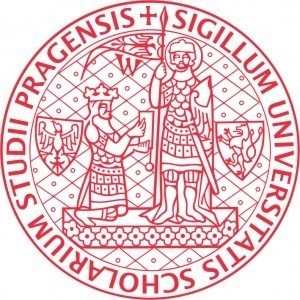Photos of university / #_charles.university_
Public and Social Policy is an interdisciplinary master's program offered by Charles University that prepares students to understand, analyze, and develop solutions to complex social issues. The program combines theoretical knowledge with practical skills in policy analysis, project management, and research methodology, equipping graduates to work effectively in governmental, non-governmental, and international organizations. Students will explore key topics such as social justice, welfare policies, public administration, economics, and ethics, gaining a comprehensive understanding of how policies are formulated, implemented, and evaluated in diverse social contexts. The curriculum includes lectures, seminar discussions, case studies, and internships, providing a dynamic learning environment that encourages critical thinking and active participation. The program aims to develop professionals capable of assessing social problems and designing innovative policies that promote social cohesion, equality, and sustainable development. Graduates will acquire the ability to analyze data, communicate complex ideas clearly, and collaborate across disciplines and sectors. The program also emphasizes ethical considerations and the importance of participatory approaches in policymaking, preparing students to contribute to positive social change. With a strong international orientation, students have opportunities for exchange programs and collaborations with global institutions, broadening their perspectives beyond national borders. The faculty consists of experienced researchers and practitioners committed to mentoring students and fostering an inclusive academic environment. Upon completion of the program, graduates will be well-positioned for careers in policy advisory roles, research institutes, international development agencies, and public administration, where they can apply their knowledge to create impactful social policies that address pressing societal challenges.
|
Code |
Name of Course |
Guarantor |
Semester |
Term |
Examination |
Credits |
|
JSM406 |
Statistics in SPSS |
Soukup Petrúšek |
WS/SS |
1/1 |
exam |
8 |
|
JSM518 |
Public Policy |
Potůček |
WS |
2/1 |
exam |
9 |
|
JSM519 |
Social Policy |
Kotrusová Angelovská |
SS |
2/1 |
exam |
9 |
|
JSM602 |
Health Policy |
Háva |
WS |
2/1 |
exam |
8 |
|
JSM685 |
Educational Policy |
Kohoutek |
SS |
2/1 |
exam |
8 |
|
JSM691 |
Policy Analysis |
Nekola Veselý |
SS |
2/1 |
exam |
9 |
|
JSM692 |
Introduction to Social Research Methodology |
Remr |
WS |
2/2 |
exam |
9 |
|
JSM694 |
Diploma Seminar I |
Frič |
WS/SS |
0/2 |
pass |
5 |
|
JSM695 |
Diploma Seminar II |
Frič |
SS |
0/2 |
pass |
6 |
Compulsory Courses Total ECTS 71
WS = Winter Semester (Oct. - Feb.),
SS = Summer Semester (Feb. - June).
|
Kód |
Název předmětu |
Prerekvizity |
Korekvizity |
Záměnnosti |
Neslučitelnosti |
|
JSM518 |
Public Policy |
JSM699 |
J#0015816
|
Code |
Name of Course |
Guarantor |
Semester |
Term |
Examination |
Credits |
|
JEB025 |
Public Finance |
Švarcová |
SS |
2/0 |
exam |
5 |
|
JMM530 |
European Comparative Politics and Society |
Rovná |
SS |
1/1 |
exam |
6 |
|
JSB157 |
Workshop Praha-Konstanz Study Days : Society, politics, and policy-making in the Czech Republic and Germany |
Novotný |
SS |
0/2 |
exam |
7 |
|
JSM018 |
Economic Sociology and European Capitalism for MA |
Blokker |
WS |
2/0 |
exam |
7 |
|
JSM019 |
Sociology of European Integration for MA |
Blokker |
SS |
2/0 |
exam |
7 |
|
JSM032 |
Applied Social Research |
Remr |
WS |
2/1 |
exam |
7 |
|
JSM103 |
Writing research project and paper in English I |
Blokker |
WS |
0/2 |
macc |
6 |
|
JSM108 |
Writing research project and paper in English II |
Blokker |
SS |
0/2 |
macc |
6 |
|
JSM421 |
Contemporary social theory |
Balon |
WS |
2/0 |
exam |
9 |
|
JSM437 |
Civil Society in Europe |
Frič |
SS |
2/0 |
exam |
8 |
|
JSM477 |
Sociology of Critique |
Blokker |
WS |
2/0 |
exam |
8 |
|
JSM480 |
Evaluation Research |
Remr |
WS |
2/0 |
exam |
8 |
|
JSM603 |
International comparison of health care systems |
Háva |
WS |
2/0 |
macc |
8 |
|
JSM604 |
Health Economics |
Háva |
SS |
2/1 |
exam |
8 |
|
JSM628 |
European policies and practice towards ethnic minorities |
Bernard Thompson Mikes |
WS |
1/1 |
exam |
9 |
|
JSM657 |
Welfare State, Austerity, and Political Parties |
Novotný |
WS |
1/1 |
exam |
8 |
|
JSM693 |
Text, Narrative & Discourse Analysis |
Hájek |
SS |
1/1 |
exam |
9 |
|
JSM701 |
Government-business interactions |
Witz |
SS |
7/2 |
exam |
4 |
|
JSM704 |
Theoretical Approaches to Policy Process |
Novotný |
SS |
1/0 |
exam |
5 |
Compulsory Courses Total ECTS 37
WS = Winter Semester (Oct. - Feb.),
SS = Summer Semester (Feb. - June).
Rekvizity
|
Kód |
Název předmětu |
Prerekvizity |
Korekvizity |
Záměnnosti |
Neslučitelnosti |
|
JEB025 |
Public Finance |
JEB003 |
|||
|
JSM018 |
Economic Sociology and European Capitalism for MA |
JSB455 |
|||
|
JSM019 |
Sociology of European Integration for MA |
JSB456 |
- Completed application form
- Copies of all relevant diplomas and transcripts. Copies of diplomas and transcripts do not have to be certified. However, if you submit uncertified copies you must bring the originals of all submitted documents with you to Prague, so we can confirm their authenticity. If you have not yet finished your previous studies and thus do not have a diploma please submit a confirmation of studies including an information on the expected date of graduation.
- Short academic curriculum vitae (resume) detailing all relevant qualifications and experience
- Letter of motivation
- All students who are non-native English speakers must provide evidence of their competence in English corresponding to at least the C1 level, CAE, IELTS 7.0 and TOEFL over 95.
The financing of the Public and Social Policy master's program at Charles University is primarily structured through a combination of governmental funding, tuition fees, and supplementary financial aid opportunities. As a public university in the Czech Republic, Charles University largely relies on state funding allocated by the Czech government to support its academic programs, including Public and Social Policy. This funding ensures that the core curriculum remains accessible to Czech and international students, often subsidizing tuition fees and providing resources for research and faculty development.
Tuition fees for non-European Union students are established according to university policies and are designed to cover administrative costs, academic resources, and faculty salaries. European Union students typically benefit from lower or no tuition fees due to national regulations and university policies aligned with the Czech educational system's emphasis on accessible higher education.
Students have access to various financial aid options, including scholarships and grants provided by Charles University, governmental programs, and international organizations. These are aimed at supporting students from disadvantaged backgrounds or those demonstrating exceptional academic merit. Some scholarships specifically target students enrolled in Public and Social Policy programs, assisting with tuition payments or living expenses during their studies.
In addition to institutional funding, students are encouraged to seek external sources of financing, such as Erasmus+ exchanges, international scholarship programs, and private sponsorships. The Erasmus+ program, in particular, offers opportunities for mobility grants, allowing students to study or intern abroad in partner universities, which can offset costs associated with the program.
While specific details on the exact costs and available financial aid for the Public and Social Policy program may vary annually, students can generally expect a comprehensive support system designed to facilitate their academic pursuits. The university also offers guidance and counseling services to help students identify and apply for relevant financial assistance. As a result, the overall financing structure aims to promote inclusivity, academic excellence, and international mobility, ensuring that students can participate fully in their studies regardless of financial background.
Public and Social Policy at Charles University is a multidisciplinary program designed to equip students with a comprehensive understanding of the principles, theories, and practical aspects of public and social policy development and implementation. The curriculum combines insights from political science, economics, sociology, law, and management to prepare graduates for careers in public administration, policy analysis, NGOs, and international organizations. Students engage in rigorous analysis of policy issues affecting local, national, and global communities, gaining skills in critical thinking, research methodologies, and strategic communication. The program emphasizes both theoretical frameworks and real-world applications, often involving case studies, internships, and project work to foster practical experience. Courses cover topics such as social welfare, health policy, education policy, environmental policy, and governance. The teaching staff typically includes experienced academics, policymakers, and practitioners who bring diverse perspectives and expertise. The program aims to foster policymakers and social innovators who are capable of addressing complex societal challenges through evidence-based and ethically responsible solutions. Graduates of this program are well-prepared for prestigious roles within government agencies, international bodies, think tanks, and non-profit organizations. The program is designed to provide a solid foundation in analytical skills, policy-making processes, and ethical considerations critical to shaping effective and inclusive public policies. Furthermore, students have access to numerous seminars, workshops, and conferences that facilitate networking with professionals and policymakers, enriching their academic experience with practical insights. The program also promotes interdisciplinary collaboration, encouraging students to consider social policy issues from multiple angles and develop innovative solutions that are socially just and sustainable. This advanced education aims to nurture future leaders dedicated to improving societal well-being through informed and effective policy-making.




